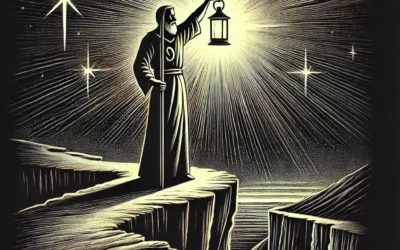The Book of Acts is the fifth book of the New Testament and the only book of biblical history in the New Testament.
Written by Luke as a sequel to his Gospel, Acts records the birth and growth of the early church after Jesus’ resurrection.
It begins in Jerusalem and ends in Rome, showing how the gospel moved outward through the bold witness of the apostles, the power of the Holy Spirit, and the leadership of Peter and Paul.
The book emphasizes the unity, generosity, boldness, and suffering that marked the first generation of believers.
The Ascension and the Coming of the Holy Spirit (Acts 1–2)
The risen Jesus prepares His disciples for their mission and then ascends to heaven.
On Pentecost, the Holy Spirit is poured out on the believers.
Key Highlights:
- Jesus spends 40 days teaching His followers after the resurrection
- Tells them to wait in Jerusalem for the promised Holy Spirit
- Ascends into heaven while blessing His disciples
- The Holy Spirit fills believers at Pentecost with wind and fire
- Peter preaches boldly—3,000 people are saved and baptised
Lesson: The church is born through the Spirit’s power, and the gospel message is meant for all nations.
The Early Church in Jerusalem (Acts 3–7)
The apostles perform miracles, face opposition, and lead a growing community of believers marked by prayer, teaching, and generosity.
Key Highlights:
- Peter heals a lame man and preaches at the temple
- Believers share possessions and care for one another
- Ananias and Sapphira lie and face judgment
- The apostles are arrested but continue preaching
- Stephen becomes the first Christian martyr after preaching before the Sanhedrin
Lesson: The early church thrived in unity and boldness, even under pressure and persecution.
The Gospel Spreads Beyond Jerusalem (Acts 8–12)
Persecution scatters the believers, and the gospel begins to reach Samaritans, Gentiles, and distant cities.
Key Highlights:
- Philip preaches in Samaria and baptises an Ethiopian official
- Saul persecutes Christians but is dramatically converted
- Peter raises Tabitha from the dead and shares the gospel with Gentiles
- Cornelius, a Roman centurion, becomes the first Gentile believer
- The church in Antioch grows and becomes a base for missions
Lesson: The gospel is for all people, and God’s Spirit moves across cultural and national lines.
Paul’s First and Second Missionary Journeys (Acts 13–18)
Paul begins his missionary work with Barnabas, then continues with Silas, planting churches and facing opposition.
Key Highlights:
- Paul and Barnabas are sent from Antioch to preach
- Encounter opposition and miracles in cities like Lystra, Iconium, and Pisidian Antioch
- The Jerusalem Council meets to settle disputes about Gentile converts
- Paul travels to Philippi, Thessalonica, Berea, Athens, and Corinth
- Preaches in synagogues, marketplaces, and homes
Lesson: Mission requires both courage and clarity—Paul proclaims the gospel in every context with grace and truth.
Paul’s Third Journey and Trials (Acts 19–26)
Paul continues to strengthen churches, faces danger, and is eventually arrested for his faith.
Key Highlights:
- Teaches in Ephesus for two years; many turn from idols to Christ
- Faces a riot stirred up by idol makers
- Returns to Jerusalem, where he is arrested and falsely accused
- Defends himself before governors Felix and Festus and King Agrippa
- Continues to proclaim Christ to both Jews and Gentiles
Lesson: Even when facing injustice, Paul uses every opportunity to share the gospel and trust God’s bigger plan.
Paul’s Journey to Rome (Acts 27–28)
Paul appeals to Caesar and begins the long journey to Rome under guard.
Key Highlights:
- Endures a violent storm and shipwreck on the way to Rome
- Shows leadership and faith during crisis at sea
- Survives a snakebite on the island of Malta
- Arrives in Rome and preaches while under house arrest
- Boldly teaches about Jesus to Jews and Gentiles in the capital of the empire
Lesson: Nothing can stop God’s mission—Paul reaches Rome, and the gospel continues to advance unhindered.
Themes of Acts
- The Power of the Holy Spirit – Equips believers for boldness, unity, and mission
- Witness and Evangelism – The gospel spreads from Jerusalem to Judea, Samaria, and beyond
- Persecution and Perseverance – The church grows under pressure
- Unity and Diversity – Jews and Gentiles form one church in Christ
- Leadership and Calling – God raises up apostles like Peter and Paul to guide the church’s expansion
Final Thoughts
The Book of Acts tells the remarkable story of how the early church was born, empowered, and sent out into the world.
It reminds us that the mission continues—through the same Spirit, the same message, and the same power that fueled the apostles.
As modern readers, Acts calls us to live with courage, unity, and a passion to take the good news of Jesus to the ends of the earth.





